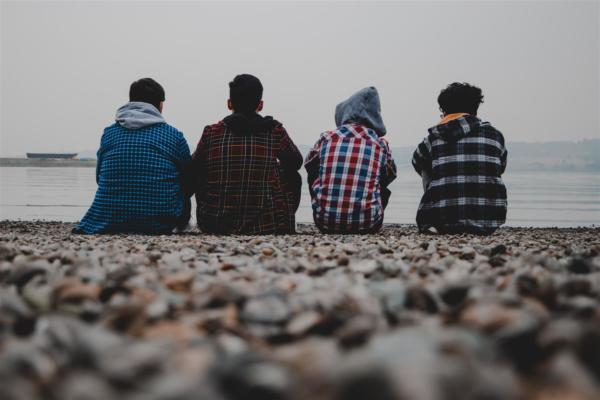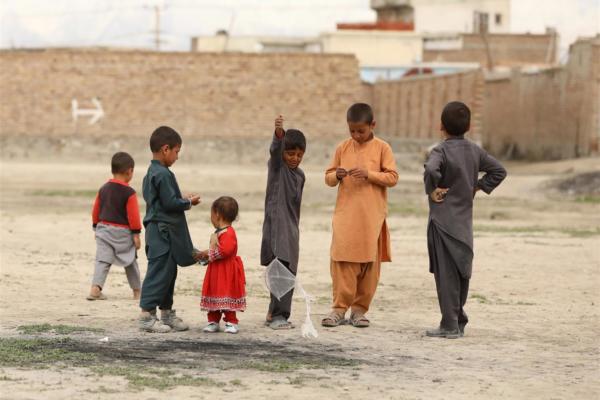When I first came to the UK at 14 years old, so much was new to me. There were new people around me and a new culture. I wasn’t sure what was right and what was wrong, or what was okay to say. Calling my foster carers Sarah and Graham by their first names, for example, was hard for me because in Ethiopia to call someone by their first name was a no-no. I remember going to meetings with social services every day after I arrived – I didn’t like those meetings at all – and for the first few months I couldn’t go anywhere without supervision. The first few days, weeks, even months, were hard.
But over time, as I settled in, things began to get better. I gained more and more freedom, and I began to go to church – my church in Ethiopia was very different to the church my foster family went to, but we managed! I liked going to school, and I liked even more coming home in the afternoon and cooking with Sarah. Those afternoons in the kitchen became the times when we would talk a lot. We’d share about our days, and I’d tell Sarah what I had learnt at school. Those moments were important; they really helped us connect.
I found it a little more difficult in the beginning to build a relationship with Graham. I was shy, and in my culture women don't tend to get close to men very quickly. On top of this, I had grown up without a father. But Graham came with me to all my meetings, and he would sit patiently and wait through every appointment. These times really helped me feel comfortable around him, and helped build trust. We now have a really good relationship, and he has been such a mentor to me while I lived in their house, and even now after I’ve moved on.
Very soon after I arrived, we went to a family wedding, which was so exciting. It was the first time I had been to a British wedding, and it was my first time meeting the extended family and all the friends. Guests had travelled in from all over the place, and a number of them came to stay at the house for a few days. It was nice, but there were times when it got a bit too much. I come from a big family as well, so seeing everyone together – I don’t want to say it made me jealous, but it brought back a lot of memories. I was always asked the same questions, especially when I met new people for the first time. The social workers would ask the same questions again and again, and I would then have to repeat those answers to the solicitor, and then I would meet a new friend or family member who would ask a question about my background – sometimes I just needed a break. When things got too much, I would go to my room and watch some TV or take a nap. Sarah always noticed when I slipped off to my room, and she would always come to check I was okay with a cup of hot chocolate or a chai latte.
There was one family member who didn’t ask me any questions. When I first came to the UK, Graham and Sarah’s granddaughter was only 6 months old. She didn’t talk yet, and I had arrived knowing very little English – so I used to find peace and feel so comfortable with her. We would play together and spend time together, and as she grew older and learnt how to speak, my English improved too. She was, and still is, so special to me. Even as a tiny baby, she helped me so much.
While I was staying with Sarah and Graham, I had to go through the process to be granted asylum, and at first my application was rejected. I had told them my story, I had shared with them that I had lost my mum, and I had given them all the information I could think of about Ethiopia, and they told me they didn’t believe that what I told them was true. But my foster carers believed me. Sarah wrote a letter to the judge. She had only known me for about five months at this point, but that was long enough for her to know me, to have a connection with me and to understand what I had been through. She came with me as a witness, she spoke up for me, and she advocated for me. She stood by my side, and she made me feel like there really were people who cared.
After a while, another girl came to live in our home. She had come from Eritrea, and although we spoke different languages, it was to have someone in our family who had a similar culture to me. She was quite shy, but we had a lot of similarities. I tried to help her settle in as much as I could, because I’d been through it myself. I think when you experience something, it’s easier to help others in that position because you have a point of connection; you’ve been in the same kind of boat. It was like having a little sister. And it made me think that one day I might be a foster mum myself.
Moving on from Sarah and Graham’s house was really hard. I had become so attached them; they had become my family. But I left and went to university, and I graduated a year and a half ago and have been working as a nurse since then. I started nursing right as COVID started, so it’s certainly been a challenging time; I was newly qualified, thinking I was going to be a cardiac nurse, and within a month I was on a COVID ward with patients who had just been moved from the ICU. But I’m really happy where I am. I’m glad I’m a nurse – I love helping people. I love seeing someone get better, and I love chatting to patients who maybe don’t have anyone else to talk to. I think I’m a bit like Sarah in that way.
I know that I can always text Sarah or give her a call. I know that I’ve got her if I need something, or need someone to talk to, and I love visiting. I think that’s what it means to be family – it doesn’t stop. Family sticks together. I’m glad that I met them when I came to this country. I’m glad that I didn’t have to face so many new things alone.









